- Learning time
- 30 minutes
- First play time
- 90 minutes
A War of Whispers
Designed by: Jeremy Stoltzfus
A War of Whispers takes place over 4 rounds across a circular board as five kingdoms duke it out for control, each starting on their home territories but striking out across the land with expansion in mind.
But the players don’t represent these kingdoms – instead, you are under-the-radar political operators, invested in certain kingdoms doing better than others come the end of this particular punch-up. Each player is secretly aligned with three kingdoms, hoping to ensure that their realms enclose as many cities as possible come the end of the game, for which they will score x4, x3 and x2 points respectively. The remaining two kingdoms score X0 and x-1 per city, and all this information is tracked on your individual board with face-down tokens you may check at any time – but keep secret from the other players!
Around the main board runs a track where each player’s agents may be assigned – each space allows the agent to manipulate events for the various kingdoms – adding more armies, moving armies (triggering combat) and perhaps adding cards to your hand. There’s a neat little trick here in that each kingdom has four potential agent spots, and not only does your agent activate the spot it occupies, it may also claim any free spots behind it. After all agents have been placed, they are all activated in clockwise order, and the ramifications of each action play out on the main board. Cards in hand may be played before, during or after your turn: each card can be played for it’s own (moderate) action, or combined with other discarded cards to activate the stronger and potentially more brutal actions on them!
At the end of each round, players can decide to change two allegiances on their homeboard. For instance if the blue kingdom (-the Bear) is doing terribly and my Bear token occupies the x4 points per city space on my home board, I can swap it with the kingdom in the x0 or x-1 place. The catch is if I do so, the swapped allegiances must both be revealed, and cannot be moved again. Now the other players know where two of your allegiances lie, and can use the knowledge against you – or indeed, work with you on temporary or permanent coalitions. But beware! As well as the downsides of the revealing mentioned above, you can only swap once per round, so bear that in mind in the jostle for positions!
After the fourth round, all allegiances are revealed, points are scored for cities, and the player with the most points wins.
The guru's verdict
-
Take That!
Take That!
Plenty, although not much of it intentionally directed at you. At first.
-
Fidget Factor!
Fidget Factor!
Low. A first play will mean the odd rules referencing on the games' iconography, but once everyone's familiar with that, it's a fairly speedy game.
-
Brain Burn!
Brain Burn!
Your own goals are fairly straightforward and, in theory, easy to achieve. In actuality, they're going to clash with others' best-laid-plans, however, and navigating the space between these clashing objectives - the battles, the compromises, the switching of loyalities - is where the difference between victory and defeat lies.
-
Again Again!
Again Again!
We wouldn't say A War of Whispers is hugely *immersive* in terms of the narrative. It almost feels like an abstract game in the push-pull of cubes and the slight sense of mathsiness to it. But it's not solvable either - every game has every players allegiances hidden, and how the cards come out gives surprising turns of events as much as the player tactics.

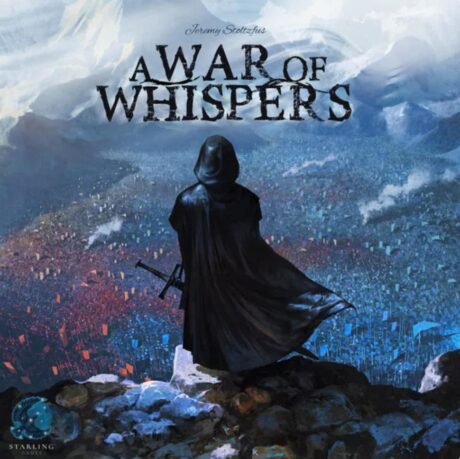
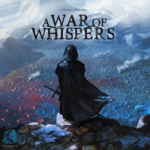
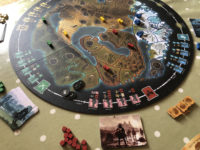

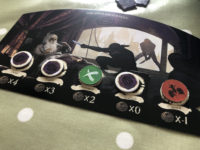
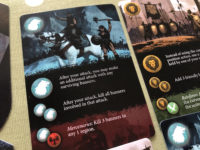



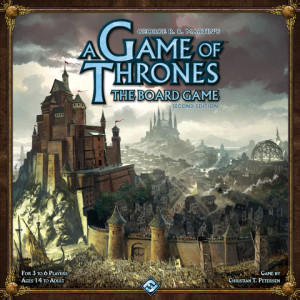
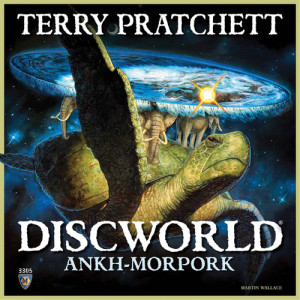
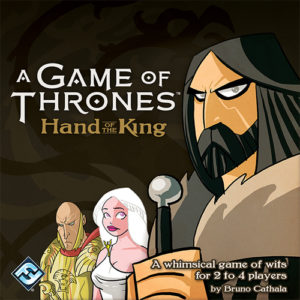

Sam says
So many games offer multi-directional combat but they often skew long - upwards of 2 or 3 hours - occasionally with heavy rulebooks and sometimes feel quite attritional, with players basically taking turns to whack each other over the head. In contrast A War of Whispers plays in an hour, is easy to grasp and is built not around open conflict, although that's very present, but the 'power behind the throne'. Designer Jeremy Stoltzfus was inspired by George RR Martin's Game of Thrones universe and the political chicanery within: how a seeming ally can flip sides if the war goes against them, how outward actions may not reflect inward intent. It's a clever, canny little thing, with a relatively innocent opening that ramps up with the addition of more agents and more cards - and if it doesn't have quite the epic feel of the inspiration material, it's still a micro-odyssey of suspicion, intrigue and malice!